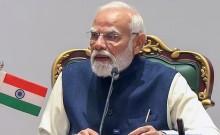The Bombay High Court on Thursday lifted the ban on Nestle India's Maggi noodles, which was withdrawn from the market following India's food regulator's order.
The HC has asked Nestle to send fresh samples for testing at accredited labs.
Bombay High Court orders fresh tests to be conducted on Maggi.
— ANI (@ANI_news) August 13, 2015
Bombay HC gives 6 weeks time to test 5 samples of all 9 varianst of maggi at 3 different the NABL labs #MaggiBan — Mrityunjoy Kumar Jha (@Mrityunjoykjha) August 13, 2015
The Nestle India stock, reacting to the Bombay High Court verdict, went up on the BSE on Thursday and was trading at Rs 6403.05, up Rs 218, or 3.53% over its previous close.
The Food Safety and Standards Authority of India (FSSAI) had found high amounts of lead and traces of MSG in the product in June this year.
On 5 June, FSSAI ordered Nestle India to withdraw nine variants of Maggi noodles from the market, claiming it was "unsafe and hazardous" to eat. However, the multinational food company has maintained from the beginning that the lead content in Maggi instant noodles is within the permissible limit.
The food regulator further accused the company of misleading the customers by labelling the packets of Maggi noodles with "no added MSG". Monosodium glutamate (MSG) is a flavor enhancer added to various packaged food items.
Nestle India's arguments in the court
Nestle India had filed a petition challenging FSSAI's 5 June order -- banning nine variants of Maggi noodles -- and the Maharashtra government's order -- prohibiting the sale of the products. The hearing went on for nearly 15 days, and now the Bombay HC is expected to put an end to the ongoing tussle between Nestle and the food regulator.
At the hearings, Nestle India argued that the CEO of FSSAI had passed the order in an "emergent, drastic and arbitrary" manner. It said that the food regulator should have served a notice before issuing the ban order, The Indian Express reports.
Further contending the FSSAI ban order, the company said the food regulator should have mentioned a case "of injury or risk to health". FSSAI could not have banned Maggi noodles just by claiming that the product was bad for health, the company argued.
Nestle also told the court that children are being told that Maggi noodles are poisonous, and this would affect the company's credibility and reputation that it built over the last 30 years.
Meanwhile, the company has landed into another trouble as the Centre has filed a class action suit against it, seeking Rs 640 crore in damages for alleged unfair trade practices, false labelling and misleading advertisements.

















